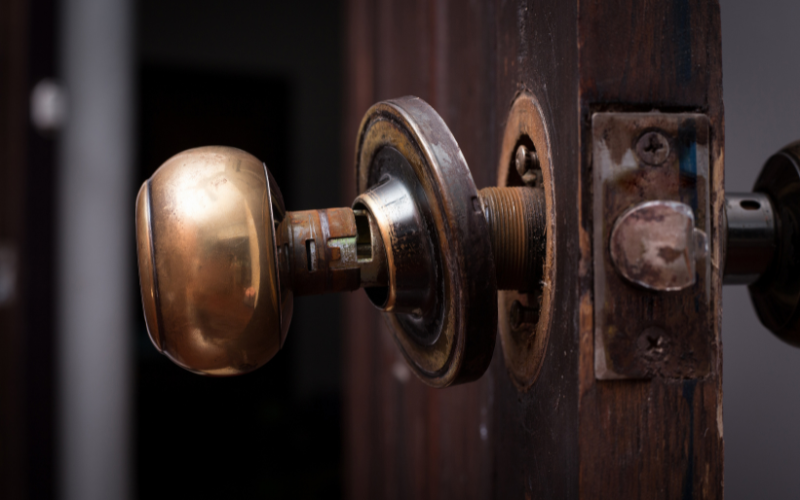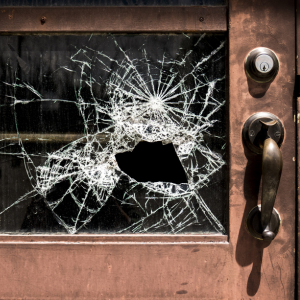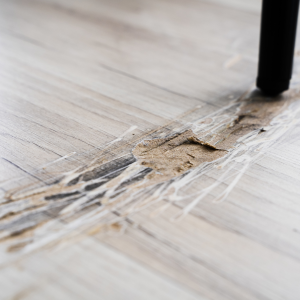
Understanding Tenant Responsibilities for Property Damage in Raleigh, NC
For landlords and renters in Raleigh, NC, to keep a good rental relationship, both must know what the tenant is responsible for when they damage property. Most of the time, renters are responsible for any damage they do to the rental property that isn’t standard wear and tear.
This includes losses caused by carelessness, negligence, or intentional acts. Tenants in Raleigh need to tell their landlords right away about any problems or damage so that things don’t get worse.
In the lease agreement, landlords should clearly state the tenants’ tasks. This way, everyone knows what they need to do to keep the property in good shape, landlords can protect their investment, and renters will know that it’s their job to keep the property in good shape.
If there are disagreements about what damage is normal wear and tear and what damage was caused by the tenant, both sides can look at local rules and examples set by Raleigh housing officials or, if necessary, get help from a mediator. Knowing these duties helps create an atmosphere of respect, where landlords can handle their properties well and tenants can live in a safe and comfortable place.
Common Causes of Tenant-Induced Property Damage in North Carolina
In Raleigh, North Carolina, landlords and renters should be aware of the most common reasons tenants damage property. Most often, damage is caused by accidents, like spills or drops that stain rugs or scratch hardwood floors.
If you don’t report plumbing leaks or mold growth immediately, for example, it can lead to bigger problems like water damage or structural damage. Tenants who make unauthorized changes, like doing repairs or painting without permission from the owner, may have to pay a lot to fix the problem.
If you don’t properly care for your pets, they can damage your property by scratching or soiling areas. Also, having too many people living in a rental unit can put extra stress on the building’s systems, which can cause damage that isn’t normal for normal use.
By knowing these things, Raleigh landlords can create easy-to-understand maintenance plans and lease agreements and teach tenants how to keep their rented places in good shape. Contact us today for help creating effective plans and agreements.
Legal Guidelines for Assessing Tenant Damage to Rental Properties in Raleigh
In Raleigh, North Carolina, it’s important for both landlords and renters to know the legal rules for figuring out how much damage a tenant did to a rental property. Landlords must know the state and local rules about security deposits and upkeep for rental properties.
The North Carolina Tenant Security Deposit Act tells landlords how they can use security deposits to pay for damage that isn’t caused by normal wear and tear. It is very important for landlords to distinguish between normal wear and tear and damage caused by renters’ carelessness or abuse.
Proper proof, like full move-in and move-out inspections with photos, can back up claims of damage caused by tenants. Tenants should know what they need to do to keep the rental property in good shape and report any problems right away.
Open conversation between landlords and tenants in Raleigh can help clear up any confusion about what damage is real and what is just normal wear and tear over time. Knowing these legal frameworks can help ensure disagreements about damage done by tenants in Raleigh rental properties are handled fairly.
Steps Landlords Can Take to Document Tenant Property Damage in NC

Renters in Raleigh, NC, should take several steps to protect their investments and ensure the problem is fixed quickly so that damage to rental property can be properly recorded. First, it’s important to check everything over while the roommate is there.
This way, everyone can agree on how the property looks, and a standard can be set with the help of a detailed list and pictures. As long as you check on the rental property often, you can find problems early on.
If there is damage, the owner should take pictures or videos of it right away and set a time stamp on them to show how bad the damage is. You also need written records that are very clear about what kind of damage was done and how bad it is.
If you want to be open and responsible, you should keep detailed records of all conversations you have with tenants about the property or their complaints. It is very important to know North Carolina’s security deposit rules. Renters who take out fixed costs from these fees must follow the rules.
The rental market in Raleigh is very competitive. By carefully following these steps, owners can protect their rights and get along well with their renters.
Effective Communication Strategies with Tenants About Property Maintenance
Landlords and renters should be clear about how to take care of rental properties in Raleigh, NC. When they do, the properties last a long time. Setting up clear lines of contact from the start can help everyone know what to do to keep the property in good shape and fix any damage tenants cause.
Renters should be given clear directions by their landlords on how to quickly report maintenance issues, such as through a maintenance portal, the phone, or email. Regular check-ins and open lines of communication can help you get along with your renters and get them to tell you about small problems before they get worse and cause more damage.
Having clear rules in the lease about handling repairs, normal wear and tear, and what damage the renter did can help keep people from fighting. When landlords listen to their renters and fix things quickly, they show that they care about keeping the property in good shape and protecting their tenants’ rights.
There are many different kinds of people renting homes in Raleigh. To ensure everyone understands and is happy, it’s important to communicate in a way that is sensitive to cultural differences and takes into account things like language hurdles or different ideas about how to take care of a rental property.
The Role of Security Deposits in Covering Tenant-caused Damages in Raleigh Rentals
Security deposits are an important part of Raleigh, NC rental agreements because they protect owners financially against damage caused by tenants. These deposits are like a safety net; they let owners pay for repairs without having to go to court or pay for them themselves.
In Raleigh, as in many other places, the security deposit is usually taken at the start of the lease and held in trust for the length of the rental agreement. You have to follow North Carolina law when dealing with these deposits; they can only be used to cover unpaid rent or damage to the property that goes beyond standard wear and tear.
Both landlords and renters need to know the difference between normal wear and tear and real damage. For example, small scuff lines on walls might be considered normal wear and tear, while big holes might be considered damage that requires the security deposit to be refunded.
It’s important to communicate clearly and keep good records. Landlords should give renters thorough move-in inspection reports to avoid problems in the future. Tenants are told to report problems immediately so they don’t have to pay for them when they move out.
Knowing these things about the security deposit helps ensure it performs well in Raleigh rental properties and can even benefit you if you decide to sell your home for cash in Raleigh, NC.
Writing a Comprehensive Lease Agreement to Prevent Property Damage Disputes

When writing a full lease agreement in Raleigh, NC, landlords and renters should be clear about what is expected of them in terms of upkeep and preventing damage. A well-written lease should determine who is responsible for what fixes and maintenance. This will help avoid arguments over damage caused by tenants.
Landlords should include specific clauses that explain the difference between normal wear and tear and damage caused by the renter. This way, tenants will know how to keep the property in good shape. Additionally, including detailed language about regular inspections can help find problems early on.
Adding a clause to the lease that says the security deposit is for repairs beyond standard wear and tear can protect landlords financially and encourage tenants to keep the property in good shape. Also, discussing how to report damage quickly lets both sides react effectively and prevent problems from happening again.
By including these clear rules in the lease, landlords and renters can better understand each other, which can help prevent property damage disputes in Raleigh’s rental market. Wake County Home Buyers can help ensure your lease agreements are clear, fair, and legally sound.
What Landlords Should Know About Insurance Coverage for Tenant Damages in NC
To properly protect their rental homes in Raleigh, NC, landlords need to know everything there is to know about insurance coverage for damage caused by tenants. Standard landlord insurance plans usually cover damage to the property caused by fire, natural disasters, and vandalism. However, damage caused by tenants may not always be covered.
Landlords should consider getting extra insurance or special endorsements that cover damages caused by tenants’ carelessness or bad behavior. They should also carefully read the terms of their insurance policy and talk to their insurance company to make sure they are protected enough.
Also, forcing tenants to get renters’ insurance can add an extra layer of security because it motivates them to pay for damage they cause by accident. In the competitive Raleigh rental market, landlords need to know all the details of North Carolina’s rental rules and insurance requirements to protect their investments and lower their risks.
Who Is Responsible When a Tenant Damages the Landlord’s Property?
In Raleigh, NC, you need to know both the lease and the local laws to figure out who is responsible for damage done by tenants. Most of the time, owners are responsible for keeping the property habitable. Tenants, on the other hand, have to pay for any damage they cause that isn’t normal wear and tear.
According to North Carolina’s renting laws, tenants must fix or pay for any damage they cause, whether on purpose or by accident. Renters and landlords in Raleigh should both inspect the property fully before moving in to keep records of its condition. This will help avoid problems in the future.
In the lease, owners should clearly define what damage is tenant damage and what damage is normal wear and tear. If a renter is careless and breaks many things, the owner may use the security deposit to fix them.
Renters may have to go to small claims court to get more money back if the cost exceeds the deposit. Landlords and renters who talk to each other well can avoid confusion about who needs to fix damage to the property.
What Is the Property Damage Law in North Carolina?
In Raleigh, North Carolina, rules about property damage are important for both landlords and renters. Being aware of these laws helps protect everyone’s rights and ensures the law treats everyone equally.
Tenants and owners in North Carolina often fight over the security deposit when damage occurs to the property. Renters can use their security deposit to pay for damage that wasn’t caused by normal wear and tear.
When the lease is up, though, they have 30 days to give a full list of all the damage and how much it will cost to fix it. You should take pictures or videos of your Raleigh rental property when you move in and out to show that it is in good shape, in case you need to use them to get your security deposit back.
Renters in Raleigh should also know that they can fight any cuts made to their security deposit if they believe they are unfair or exceed the cost of the fixes. Landlords can protect their investments and ensure tenants’ rights are respected while they are renting by knowing North Carolina’s rules on property damage. This knowledge can also be valuable if you sell your house fast for cash in Garner, NC, and nearby areas.
How to Sue a Tenant for Damages to Property?

Renters in Raleigh, NC, should know how the court system works if they damage your property and you need to sue them. First, make a list of all the damage. You can get clear pictures and any other proof you need, like repair quotes and records, to do this.
Look over the deal one more time to make sure the renter is responsible for the damage. In North Carolina, owners must give renters a full list of the damage and how much it will cost to fix it before they can go to court.
Next, you could go to small claims court and ask for the money back if they can do that. Small claims court is a faster and easier way to settle claims about property damage.
Make sure you follow all neighborhood and state rules about how to get rid of someone if you need to. You could also talk to a landlord-tenant lawyer in Raleigh, NC, who specializes in this area of law. This would help ensure that your case is well put together and that all the information is in order.
These steps show landlords how to sue renters for damage to their homes. This will protect their rights and money.
Is It Worth Suing a Tenant for Damages?
Before they sue for losses, renters in Raleigh, NC, need to consider many important things. First, they must determine how much and how badly the property was hurt to decide if someone needs to be charged.
If there are only a few small signs of wear and tear, you might be unable to make a case. But if the building is badly damaged or someone plans to destroy it, you might. Also, think about the renter’s money. If lawyers don’t have enough money, they might not be able to get it back.
In North Carolina, court and lawyer fees can add up fast. This means that it might not be worth it to fight. If renters hurt your property, mediation or small claims court may better settle your disagreements.
Landlords should also consider whether eviction is necessary. In Raleigh, you must follow strict North Carolina eviction laws, which usually require proper written notice and, if the tenant refuses to leave, a court process known as “summary ejectment.” Trying to remove a tenant without going through the courts can expose a landlord to legal penalties. Eviction may be the right step if renters cause serious damage, fail to pay rent, or repeatedly break lease terms—but it must be done legally to protect the landlord.
Also, landlords should check their insurance to see what damage they cover. If you rent in Raleigh, you need to know the rules to follow them and avoid the risk of being sued.
A lawyer who knows much about North Carolina real estate law can also help you decide if going to court—or starting the eviction process—is the best way to fix the damage your renters did to your home.
Need to sell your home fast? Wake County Home Buyers offers fair cash deals, handles all details, and makes selling hassle-free. Call (919) 473-6885 for a no-obligation offer today!
Helpful Raleigh Blog Articles
- Tenant Damage To Property in Raleigh, NC
- How To Successfully Sell Home With Title Issue in Raleigh, NC
- Fixing Up a House to Sell in Raleigh, NC
- Refinance a House After Divorce in Raleigh, NC
- Optimal Season For Selling Your Home In Raleigh, NC
- Selling A House To A Family Member in Raleigh, NC
- How Long Does An Eviction Process Take in Raleigh, NC
- Capital Gains Tax After Selling A House in Raleigh, NC
- How Much Does Home Staging Cost in Raleigh, NC
- Can You Sell a House As Is Without Inspection in Raleigh, NC
- How Much Equity Do I Need to Sell My House in Raleigh, NC

| LANDLORD AND TENANT | ECOURTS | EVICTION NOTICES | EVICTED | EVICTIONS | RENTING |
| CONTRACT RENT | APPEAL | NOTICE OF APPEAL | MAGISTRATE | CONTRACT | APARTMENT |
| HOUSE | INDIGENT | EJECTMENT | POLICE | MAINTENANCE AND REPAIRS | CLERK OF COURT |
| CLERKS OF COURT | FREE LEGAL ASSISTANCE | LEGAL AID | LEGAL ASSISTANCE | INSURANCE COMPANY | PETITION |
| MONEY | INCOME | MANAGEMENT | FAILURE | CREDIT | IF THE LANDLORD |
